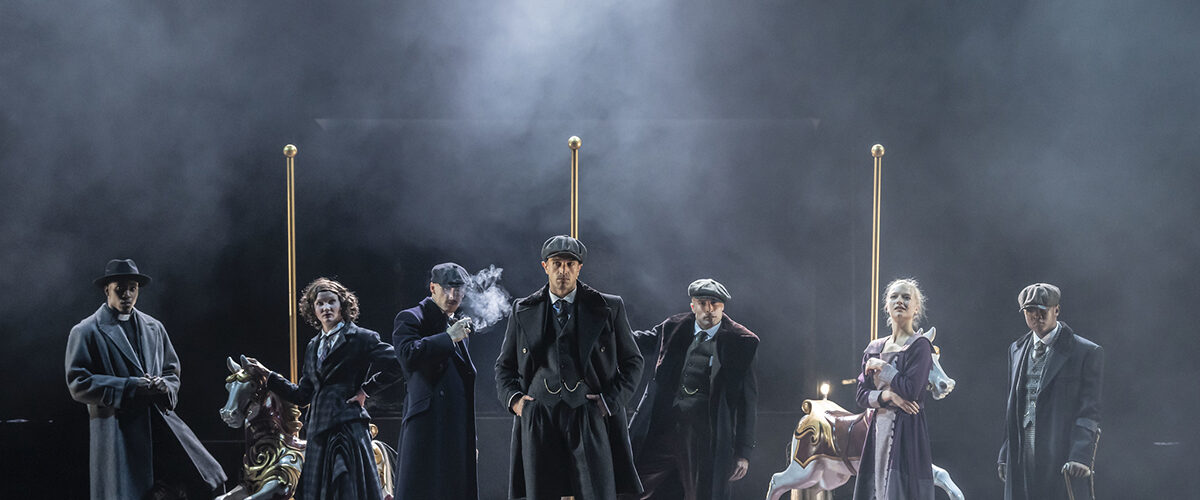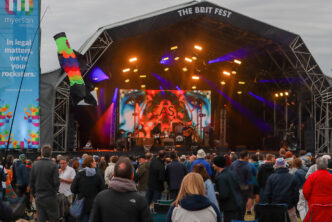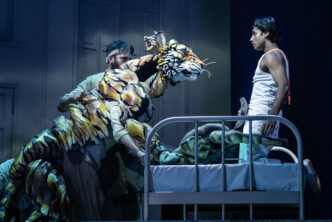“This is a respectable event and you’ll all behave accordingly.” So says the voice of Thomas Shelby (aka Cillian Murphy) warning us that there must be no photography, no recording and no fighting, as the house lights go down to cue the opening of Rambert Dance’s “Peaky Blinders: the Redemption of Thomas Shelby”.
It’s a clever idea to bring together an iconic tv series with a stylish modern dance company. As director/choreographer, Benoit Swan Pouffer states in the programme notes:
“Peaky Blinders is a brand, so that might attract ticket buyers who have never seen dance before. Once you have them in the seat they can fall in love with the medium.”
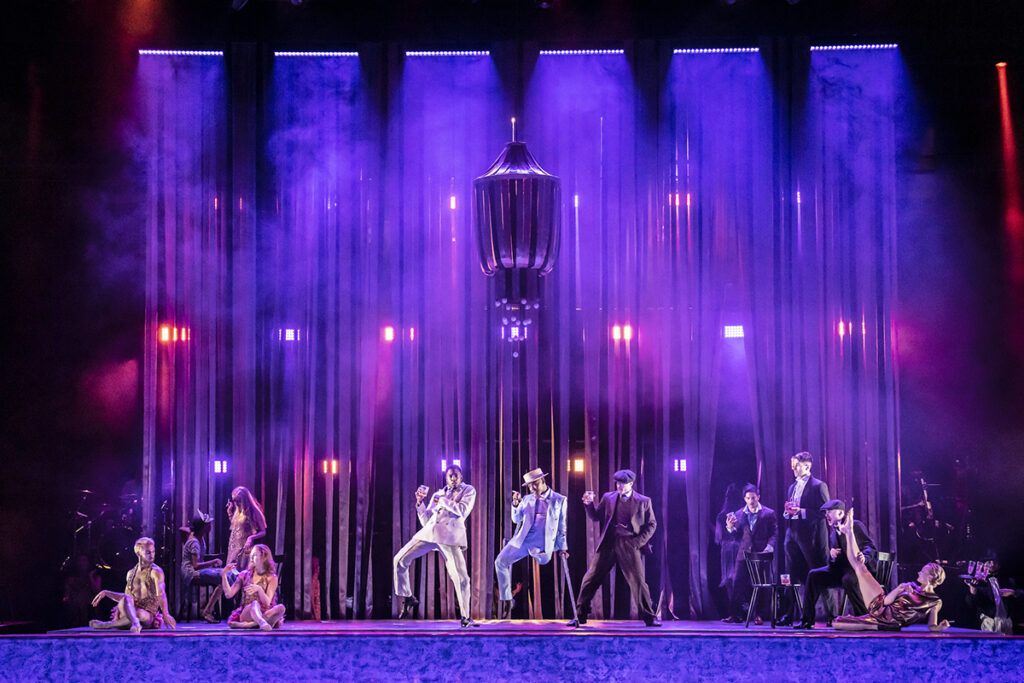
The question then has to be: does this show have what it takes to create converts to the art form and thus broaden the audience? For my money, it’s a definite maybe.
On the plus side, it has drawn the punters. So far as I can see, there is hardly a gap in the 1700 seats of the Lowry’s Lyric auditorium.
It’s hard to imagine any of those present being entirely unfamiliar with at least the premise of the story, but just in case…
The young men of the Shelby family, a coming together of Romani and Irish pedlars, based in Birmingham, return from the front at the end of World War One to a land not at all fit for heroes. Led by Thomas Shelby, they decide to put their courage and capacity for unhesitating brutality (so useful in wartime) to their own purposes – building a locally, then nationally, then internationally powerful criminal gang. In this version, we see Tommy falling in love, marrying (with tragic consequences) and descending into opium addiction, before finding the titular redemption.
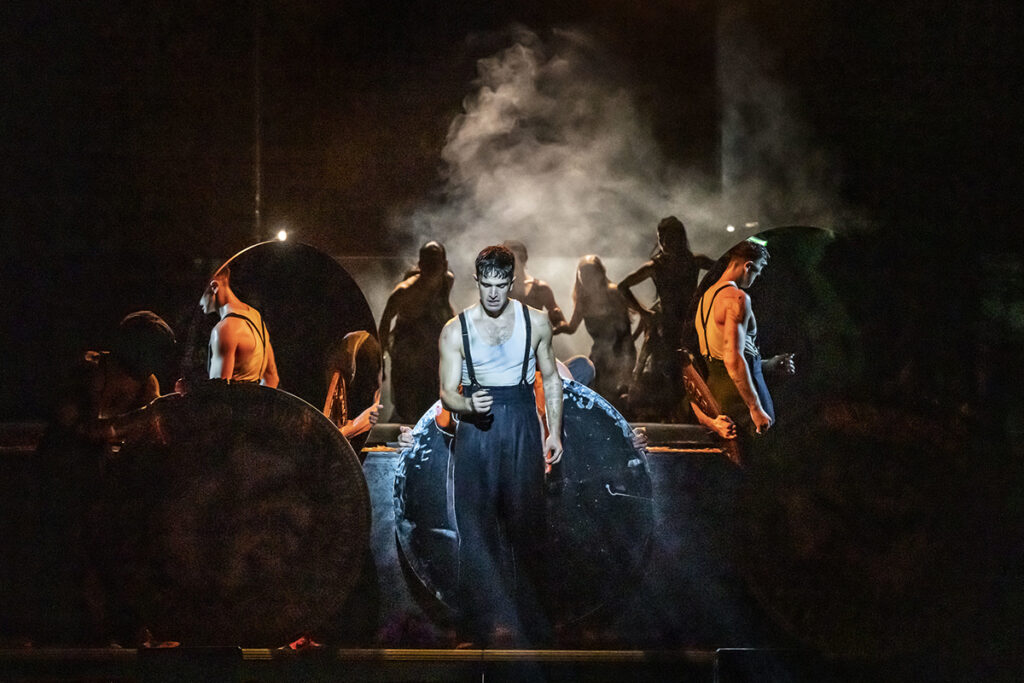
The plot for the dance piece (which runs at around 100 minutes, plus a single interval almost exactly midway) is billed as a ‘prequel,’ though it features elements familiar from the tv show (such as the Shelbys’ move to take over the racket at racecourses). The staging of this, using carousel horses, is one of several visual treats on offer.
Wisely, the production not only embraces the use of anachronistic contemporary music, much of it is performed “live” by the excellent Yaron Engler (drums, percussion and vocals), be-kilted James Douglas (cello, bass, vocals) and The Last Morrell (vocals, guitar, keys). Powerful and precise throughout, they add a necessary edge and audacity to the movement.
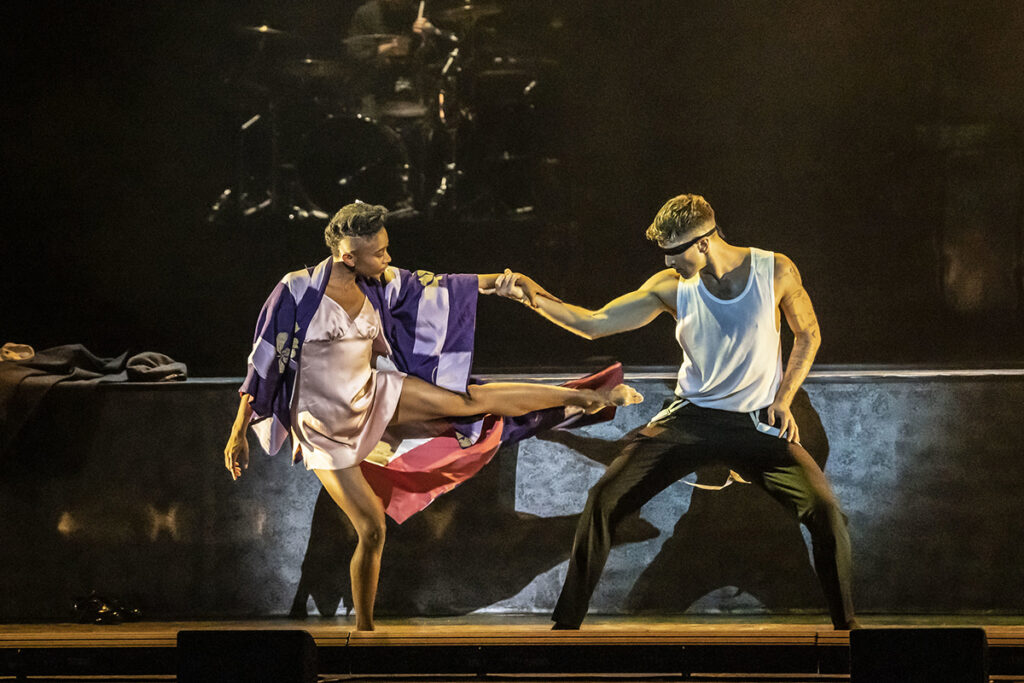
Rambert as a company is bursting at the seams with excellent dancers. Herein lies both a strength and weakness of the production. Everywhere the eye lands there is an exceptional performance – the trouble is, often the eye is drawn hither and thither with no focal point. This is fine for the violent, “chaotic” incidents (and no adaptation of Peaky Blinders could be without these), but the stage can sometimes seem over-busy with action.
Against this, the opening scene, set at the Front (and narrated with familiar, welcome authority by that renowned Brummie, Benjamin Zephaniah) is impactful through the chilling calmness of its savagery. It is not just Sergeant Arthur Shelby, “wild as a gypsy dog,” who despatches hapless German soldiers with cold efficiency; one of his clan even takes a scalp (literally) before our eyes. For displaying “extreme valour,” Zephaniah tells Sergeant Major Thomas Shelby, “you are condemned to a life without a soul.”
“Given you are all dead but not buried with the dead, you are all free to do exactly as you f**king please.”
Back in Birmingham, where Aunt Polly is already working a successful scam, Tommy begins to lead the clan to ever worse and greater things, telling them that, “For those who make the rules, there are no rules.”
Then Tommy falls for Grace Burgess, of whom we are told, “the truth is a long, long way behind her eyes.”
Act One closes with love and tragedy.
Act Two opens with two scenes which in themselves take the production to another level. A distraught Thomas has taken refuge in a mesmerisingly-staged opium den. Addicts rise from beneath shrouds like zombies, exhaling the smoke that tethers them to their sanctuary, while deepening their dependence. Polly and Ada try unsuccessfully to draw Tommy away from this:
“We shake hands with death and we walk past,” urges Polly (voiced by the late lamented Helen McCrory).
Tommy though, is lost in his opium-induced hallucinations, dancing a heated but romantic pas de deux with the ghost of Grace, before moving into another pas de deux, (this one touching the sublime) with the amputee Barney. I could happily have watched these two scenes on loop for the rest of the evening.
Tommy will return from his deathly addiction. I’ll leave you to work out why. The rise of the Shelbys will find a more loving path.
The dancers are cool (as well as hot, if you get my meaning), and costume designer, Richard Gellar and his team have clearly had a wonderful time maximising the trademark contrasts of glamour and grit for the show’s many outfits, right down to the smallest detail. Razor blades flash from the peaks of the Brummie gangsters’ caps (although this is part of the mythology of the gang, not historical fact – the name references the fashion of wearing the peak pulled low over one eye, thus “blinding” them).
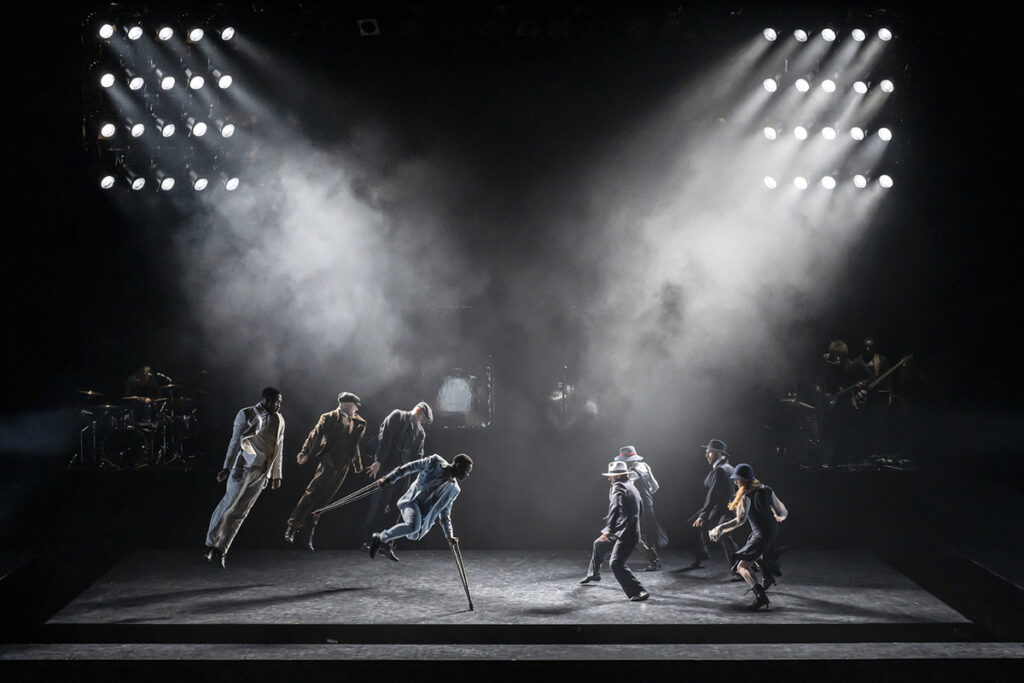
The lighting design (Natasha Chivers) is generally impressive, but could perhaps do more to guide the eye in busier scenes.
Pouffer’s choreography in the “quieter” scenes can be a thing to marvel at (as in those pas de deux). The danger is when stylised violence is overused, we have something close to Seven Brides for Seven Brothers plus dead bodies played on repeat.
All the dancers are wonderful, though Simone Damberg Würtz (Polly), Adél Balínt (Ada), Naya Lovell (Grace) and Musa Motha (Barney) are that bit more wonderful than the others tonight.
Seventeen hundred people on their feet. What else do you need to know?
Rambert Dance in Peaky Blinders – The Redemption of Thomas Shelby 2023 is at The Lowry, Salford from 14-18 March 2023. Age recommendation 15+

